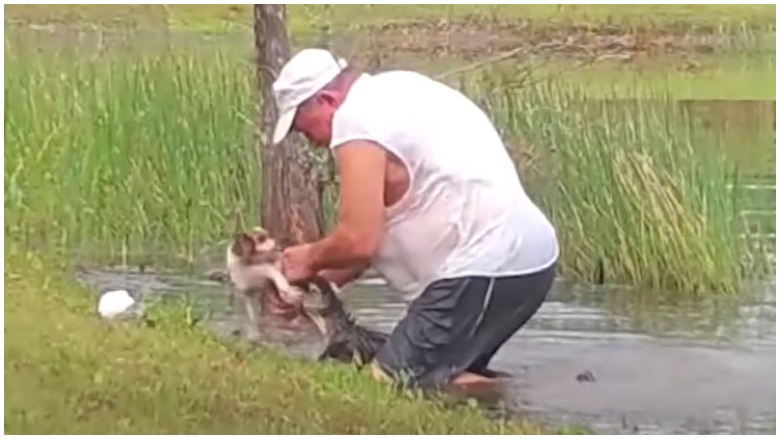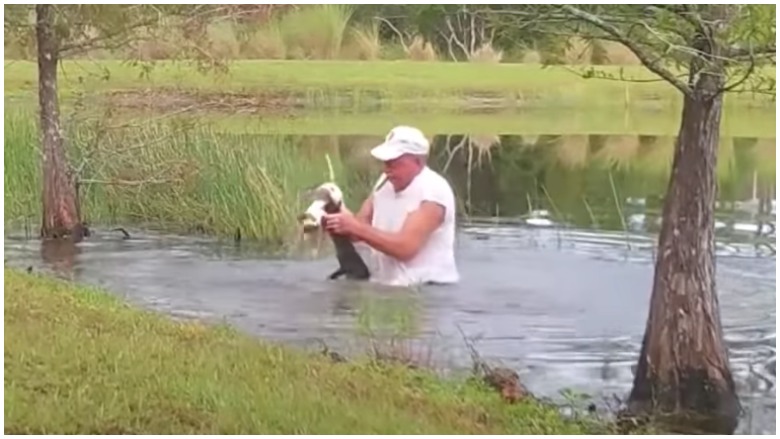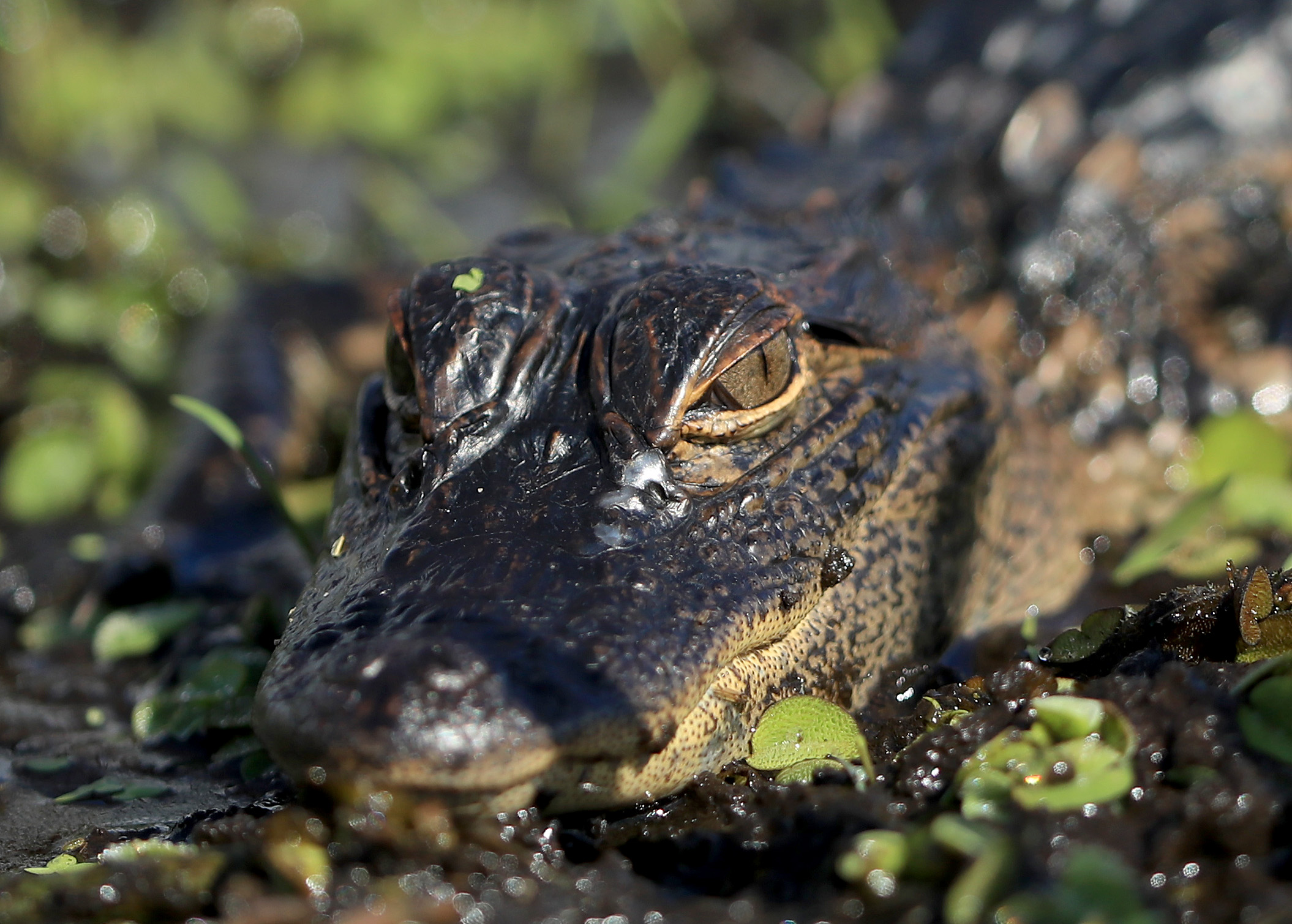
Florida Wildlife Federation Richard Wilbanks saved his puppy from an alligator.
Richard Wilbanks is the southwest Florida man who jumped into action to save his young puppy after the animal was snatched by an alligator outside their home. Wilbanks grabbed the alligator with both hands and pried its jaws open in order to rescue his spaniel named Gunner. Neither human nor animal was seriously hurt.
The incident was recorded by cameras set up by the Florida Wildlife Federation and the fSTOP Foundation. The two organizations partnered on a campaign called “Share the Landscape,” which was intended to help educate community members about the local wildlife, as 10 Tampa Bay reported.
Here’s what you need to know:
The Alligator Was Swimming in Wilbanks’ Backyard Pond & Dragged the Puppy Underwater
Wilbanks lives in the village of Estero, which is located in southwestern Florida near Fort Myers. He has a pond in his backyard.
Wilbanks told CNN he took his three-month-old puppy, Gunner, outside for a walk. He said the alligator “came out of the water like a missile” and grabbed Gunner. Wilbanks told the network he didn’t hesitate to go after the reptile and save his dog. “I just automatically jumped into the water.”
The video shows that Gunner was dragged underwater before Wilbanks could reach him. But Wilbanks managed to latch onto the alligator before it could swim away.
The alligator had the dog’s stomach in its mouth. Wilbanks pried the gator’s jaws open, which allowed the puppy to run away. Luckily, Gunner was not seriously injured and a veterinarian took care of the stomach bite.
Wilbanks told CNN he received a tetanus shot as a reaction because his hands were “chewed up” from his battle with the reptile. Wilbanks said he now keeps the puppy on a leash and a further distance away from the pond.
Florida Wildlife Officials Say Alligator Attacks Are Rare But Urge Community Members to Take Precautions

Florida Wildlife FederationRichard Wilbanks saved his puppy from an alligator.
There are more than 1.3 million alligators living in all of Florida’s 67 counties, according to the Florida Fish and Wildlife Conservation Commission. The reptiles are found in swamps, rivers, lakes and waterways along which humans have built homes, which has resulted in more interactions between alligators and humans.
The agency explains on its website that the chances of being attacked by an alligator are very low. The FWC receives about 7 reports per year of alligator bites and says the “likelihood of a Florida resident being seriously injured during an unprovoked alligator incident in Florida is roughly only one in 3.1 million.”
The alligator in Wilbanks’ backyard pond went after the puppy because it was an easy opportunity for a snack. The FWC explains that alligators do not intentionally seek out humans or our pets:
Alligators are opportunistic feeders and will eat animals that are readily available to them. They prefer to go after prey they can overpower easily. Opportunity is the primary factor that causes an alligator to pursue prey.
Wilbanks did not report his incident to wildlife officials because, as he told WINK News, he understood the gator was simply acting on instinct. The FWC issued a statement to the outlet:
The Florida Fish and Wildlife Conservation Commission (FWC) have not received a report of this incident and the video shared is not the property of FWC.
We encourage everyone to take precautionary measures, particularly those who live or recreate near the water. Dogs and cats are similar in size to the natural prey of alligators. Do not allow pets to swim, exercise or drink in or near waters that may contain alligators. Keep pets on a short leash and away from the water.

GettyAn alligator at the Orange County National Golf Club on October 11, 2020 in Orlando, Florida.
Florida wildlife officials will remove alligators from certain areas if the animals pose a substantial threat to humans. According to the Statewide Nuisance Alligator Program website, “an alligator is deemed a nuisance if it is at least 4 feet in length and the caller believes it poses a threat to people, pets or property. There are situations when smaller alligators wind up in places that are not acceptable, such as swimming pools, garages, etc., and must be removed.”
The alligator Wilbanks handled was, based on the video, clearly smaller than 4 feet. The FWC says smaller gators are generally “not large enough to be dangerous to people or pets” but warn against feeding or going near them.
READ NEXT: Ranin Karim, Carl Lentz’s ‘Mistress’: 5 Fast Facts